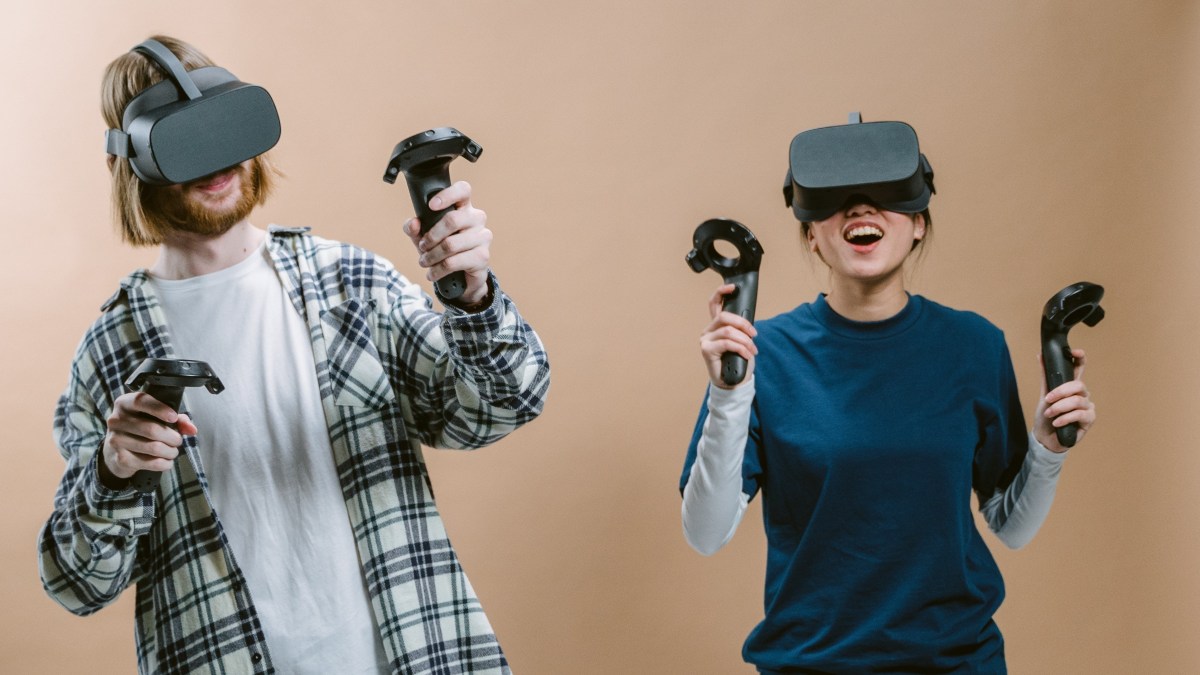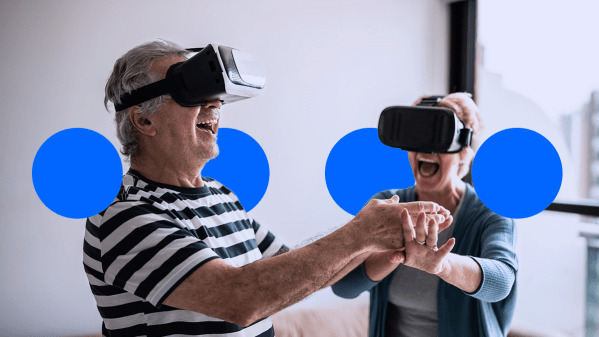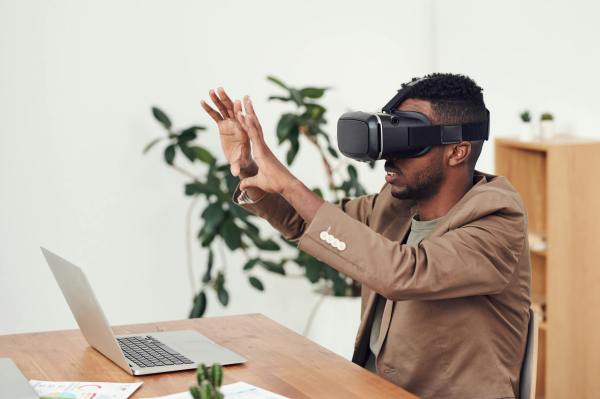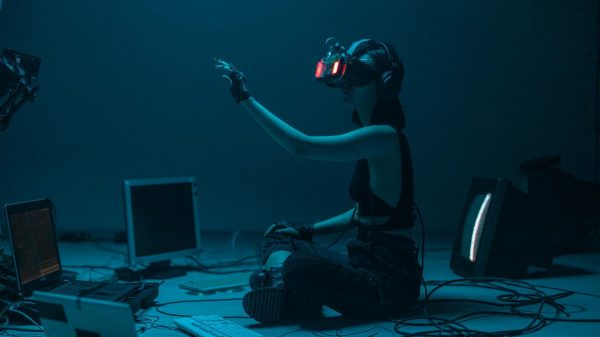Applications such as Meta Horizon Worlds, VRChat, or Rec Room, among others, already offer environments in which communities of users can carry out activities and interact with each other in an immersive digital space.
Many have highlighted the great opportunities that the Metaverse will offer in areas such as education, teleworking, and entertainment, but questions have also begun to be raised about the social and ethical challenges it poses and, in particular, its potential impact on our mental health. But questions have also begun to be raised about the social and ethical challenges it poses and, in particular, its potential impact on our mental health: can the use of applications in the Metaverse lead to addiction, to what extent can it expose users to harassment or violence, can virtual reality users end up disconnected from real reality, are some of the questions that have been raised recently.
The first scientific studies exploring some of these issues are now beginning to appear. Many of them address mental health not only as the absence of clinical disorders, but in a broader sense (in line with the World Health Organisation‘s definition of mental health), related to the individual’s perception of subjective well-being. Consequently, such research often considers, in addition to the risks, the potential benefits for the mental health of users, as we will see below.
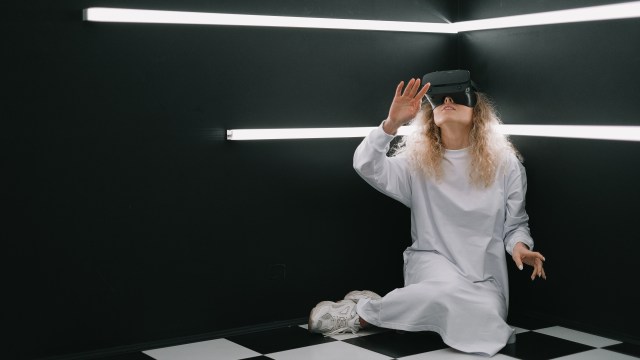
Potential mental health risks of the Metaverse
One of the main components of the Metaverse, as mentioned above, will be immersive virtual worlds. In these, the user – equipped with virtual reality goggles – will experience a sense of presence, of actually being there, within the digital environment. This illusion is a fundamental part of the appeal of the Metaverse, but it could also increase its potential negative effects compared to more traditional media.
Harassment
A clear example of this is bullying. Online harassment has been widely studied, but in the case of virtual reality applications, it can take on a new dimension. Thus, when users interact using avatars, they reproduce the user’s movements and replace their physical body. This means that an aggression towards our avatar is often instinctively perceived as an aggression towards our own body, almost like a real physical aggression. In this sense, a recently published study interviewed 31 female users of social virtual reality platforms. The results show that, due to the illusion of physical presence, experiences of harassment on these platforms are particularly hard for the victim, and underline the need to establish mechanisms to prevent these situations.
Addiction
Another example would be addiction to virtual reality applications such as games or social platforms. The hypothesis here is that if the sensation of presence increases the realism of immersive experiences, the psychological reward received by the user – and therefore the addictive potential of that experience – could also be greater. A recent study (in which the author of this article participated) analysed the prevalence of addictive behaviours in a group of 750 users of virtual reality applications. The results suggest that the prevalence of addictive behaviours among these users is not higher than among users of other technologies such as video games in more traditional formats, or social media. However, a correlation was found between the feeling of embodiment (the sensation that the user’s avatar is their own real body) and symptoms of addiction. This could suggest that users who experience this feeling more intensely may also be at greater risk of developing addictive behaviours.

Benefits of the Metaverse for mental health
More natural virtual interactions
Just as the sense of presence may intensify some negative aspects of these applications, it may also stimulate positive interactions for users’ well-being. Having a fulfilling social life, with rich and meaningful social relationships, is a key component of our psychological well-being and, in the past, studies have shown how technologies such as social networks or online video games can be positive in this regard: for example, by making it easier for us to keep in touch with distant loved ones, helping us to expand our social capital, and to find people with similar circumstances or interests to our own.
Feeling of physical presence in virtual worlds
In the case of immersive applications, recent evidence suggests that the feeling of presence could enhance these benefits. Thus, when we interact through avatars in a virtual space, we experience the illusion that we are actually sharing a space with the other, and we can perform actions similar to those we perform in physical reality (for example, we can look the other person in the eye or even give a virtual hug).
Increased interpersonal connection
Some studies (based, for example, on interviews or user surveys) suggest that these ‘realistic’ interactions may stimulate feelings of connection with others more strongly than less immersive media (e.g. video calling or text messaging). For example, in one study, students in a VR-generated class during the covid-19 pandemic (when face-to-face classes were suspended) reported that the feeling of being there with other students contributed to a greater connection and sense of community among them. Meeting people with similar profiles, practising social skills, or learning languages, all while experiencing a sense of being there in the company of others, are other activities that some users already do in these virtual worlds and which, as we say, can have positive impacts on their well-being.
Metaverse and mental health: how to ask the right questions?
Although studies such as those mentioned above are beginning to appear, there are still many questions to be explored in the field of the Metaverse and mental health (and soon there will be even more, as the Metaverse develops and new applications emerge). To find useful answers, it will be important to take into account the experience accumulated by social scientists who have devoted themselves to studying the impact on users of technologies such as the internet, video games and social networks. As Cambridge University researcher Amy Orben points out, some key principles for asking the right questions in this regard are as follows:
Focus on specific uses
The possible ways of using technologies such as the internet or social media – and now the Metaverse – are many, and different uses will have different effects. So, rather than the impact of the Metaverse as such on our mental health, it will be useful to explore the effects of specific use cases (a certain application, a certain pattern of use, etc.).
Take into account the individual characteristics of the users
Different technologies affect different users differently: for example, adolescents may be particularly sensitive to aspects such as social comparison with others on social networks, which could affect their self-esteem, or certain characteristics may make some users more prone to video game addiction. When exploring the impact of the Metaverse on the mental health of its users, it will therefore be necessary to specify which user population we are referring to, and their characteristics.
Understanding the time dimension of the effects analysed
For example, some studies indicate that many VR users may experience a sense of unreality – or of “being in a dream” – immediately after VR sessions. But another study seems to indicate that this is simply a momentary effect, occurring mainly among novice users, and that it disappears as they become accustomed to the technology. Thus, understanding the temporal dimension of the effects is essential to correctly assess their impact on users.
Pay attention to the size of the effects analysed and their relevance in practice
A clear example in this regard is research using data from more than 300 000 adolescents. This study found a consistent relationship between the use of digital technologies and lower levels of psychological well-being in adolescents, but these results also suggest that the size of this effect is very small: if the use of digital technologies were removed from these data, well-being would increase by less than 0.5%. Thus, just because a study shows the existence of an effect does not always mean that it is relevant in practice.
Understand the direction of the effects analysed, and whether or not they imply a causal relationship
For example, if a study were to show a correlation between the use of a virtual reality game and experiencing feelings of loneliness, should we interpret this to mean that those who use this application end up feeling lonelier (perhaps because they spend less time seeing their friends in real life), or perhaps that those who feel lonelier spend more time in this game (perhaps to meet new people through it)? A simple correlation cannot infer causality; more sophisticated study designs (e.g. longitudinal studies) are needed for that.
Thus, a good understanding of the potential impact of the Metaverse on our mental health and psychological well-being requires detailed and complex research that avoids simplistic questions. In this article we have reviewed some of the early research in this area. But these are only the first steps on the long road to a deeper understanding of the human and social side of a technological revolution that may change our lives in the years to come.

